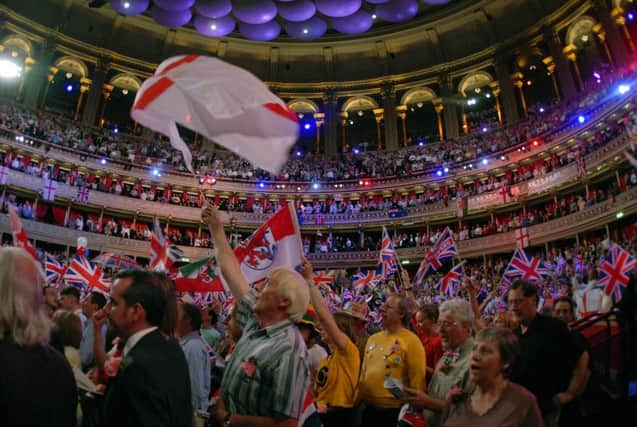BBC Proms and two Yorkshire music festivals join initiative to become '˜gender neutral' within four years


But a scratch of the needle over the music industry’s record reveals that its newly-stated mission to achieve gender equality within four years is rooted in generations of men having called the tune.
Two Yorkshire festivals and the BBC Proms are among four dozen organisations now committed to a “50-50 gender balance”by 2022.
Advertisement
Hide AdAdvertisement
Hide AdThe move was announced at an event organised by the music funding charity PRS Foundation, at the Canadian High Commission in London.
Vanessa Reed, its chief executive, said she hoped it would be “the start of a more balanced industry which will result in benefits for everyone”.
The music business has not always been as inclusive. The list of the 50 best-selling artists of all time includes only eight female acts – Barbra Streisand, Madonna, Mariah Carey, Celine Dion, Whitney Houston, Shania Twain, Britney Spears and the country singer Reba McEntire.
Ms Streisand, the highest-ranked, is placed at 12th with 68m sales. At the top of the list, The Beatles have sold 178m records.
Advertisement
Hide AdAdvertisement
Hide AdMs Reed said the initiative to render the stage gender neutral was “crucial” for the arts industry in the UK and internationally.
“With increased public awareness of inequalities across the creative industries we have an opportunity to respond and commit to tangible change in music,” she said.
In Yorkshire, the Huddersfield Contemporary Music Festival, which celebrates its 40th anniversary in November, and Hull’s 53 Degrees North event have added their names to the list of participants.
Róisín Hughes and Graham McKenzie at Huddersfield said they were seeking to challenge “the under representation of women in the music industry”, and were committed to “an ongoing programme of activities designed to create opportunities for female music-makers and explore and challenge barriers to women choosing music as a career.”
Advertisement
Hide AdAdvertisement
Hide AdStewart Baxter, of 53 Degrees North, said: “We have always aimed for a 50-50 gender balance with our music projects and wider work, and being a part of this great initiative holds us completely accountable to practice what we preach.”
The festivals sector, which encompasses classical and jazz as well as popular music, has mushroomed since its 1960s emergence as part of the music counterculture. Last summer, there were an estimated 230 festivals across the UK, with around 46 per cent of attendees female. However, women made up only 18pc of the headline acts.
Last summer’s BBC Proms, which included its first provincial performance since 1930, at The Dock in Hull, also saw a woman conduct Beethoven’s 9th Symphony for the first time. Xian Zhang was one of a record seven female conductors during the season.
David Pickard, director of the Proms, said it would now strive for a 50-50 gender balance of contemporary composers whose work was chosen to be performed.
Advertisement
Hide AdAdvertisement
Hide AdHe said: “It is something we have been committed to for some time and consider vital to the creative development of the world’s largest classical music festival.”
The PRS Foundation awards grants to up-and-coming music professionals. It said more than half last year were female and 40pc from minority communities.